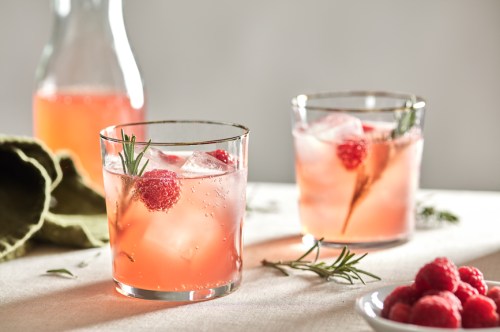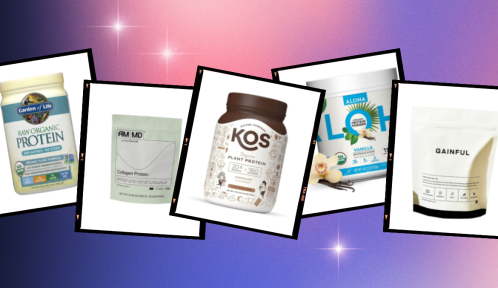Our editors independently select these products. Making a purchase through our links may earn Well+Good a commission
Wellness-centric beverages have come a long way from the highly problematic “detox” teas of the last decade. We guzzle gut-friendly kombucha (heck, we’ve even tried to make our own), crave cold brew no matter the temp, dapple in drinking vinegars, and wake up dreaming of frothy matcha lattes for a longevity boost daily. However, we have our eyes on a new type of health-promoting beverage: plant-based tonics. This new drink category claims to do everything from quelling anxiety, improving digestion, boosting your mood naturally, and helping with focus.
Experts in This Article
registered dietitian nutritionist and author of Collagen: Self-Care Secrets to Eat, Drink, and Glow
If you’ve never heard of plant-based tonics, it’s likely you’ve actually seen them in the beverage aisle of your local Whole Foods or other health food store. Many leading brands of tonics (such as Goldthread and Sunwink, both of which are pioneers in the category stateside) are herb-based. They’re formulated by herbalists to include specific spices and adaptogens intended to improve your energy levels, gut health, and feelings of stress or anxiety. Interestingly, many of these tonics are inspired by ancient recipes and remedies from all over the world. But do these plant-based tonics actually work? We chatted with Jessica Bippen, MS, RD, of Nourished By Nutrition, to get the scoop.
An RD’s thoughts on plant-based tonics
“I love seeing more functional ingredients become mainstream,” says Bippen. “I also appreciate that many of these wellness tonics brands are creating ways for people to consume these ingredients in an effortless, enjoyable way.”
Bippen says that these drinks can serve as functional additions to your diet depending on their ingredients and any particular concerns you may have—whether that means improving your mental clarity, digestive regularity, or both. Plus, she likes that many of the major brands offer these functional ingredients, like herbs, spices, and adaptogens, without using excess added sugar. However, Bippen notes that calling these beverages “plant-based tonics” feels like a bit of a marketing tactic as your favorite cup of tea, coffee, and other tonics are also naturally plant-based.
“Wellness ingredients, like adaptogens, are trendier than ever, but I am here for it,” Bippen says. “Plants are powerful and even small amounts can make an impact in terms of health. However, most known benefits require a larger dose than just drinking a single tonic.”
Bippen says that for example, research shows that you need three to five cups of green tea to start reaping its touted health benefits, and it also needs to be a consistent part of your daily or weekly routine to reap the longevity rewards in the long-run. The same is true for any other wellness-promoting beverage. “Adaptopens take their time to help bring the body back into balance to take effect,” she says. “That doesn’t mean you won’t notice results or feel great after drinking one tonic. If anything, you’ll be well-hydrated.”
Bippen says it’s important to note that since these drinks are made with some pretty powerful herbs and spices, and many don’t have much added sugar, they may not be worth the investment if you don’t enjoy earthy, herbal flavors. While she would rather take adaptogenic supplements and sip on a homemade tea elixir or tonic, Bippen says these are still great on-the-go picks and if you enjoy the taste, they can certainly be part of your regular grocery list. However, these drinks can be pretty pricey, so she stresses the importance of only buying these if you really do enjoy the taste.
How to shop for plant-based tonics like a dietitian
Bippen says that shopping for plant-based tonics is pretty easy considering most widely available brands don’t use much added sugar, making them a better option than kombucha or those buzzy prebiotic sodas in many instances. However, she says it’s still important to read the labels of these beverages before purchasing them, especially if you’re sensitive to sweeteners like Stevia, monk fruit, or erythritol, which are often used to offset the lack of added sugar.
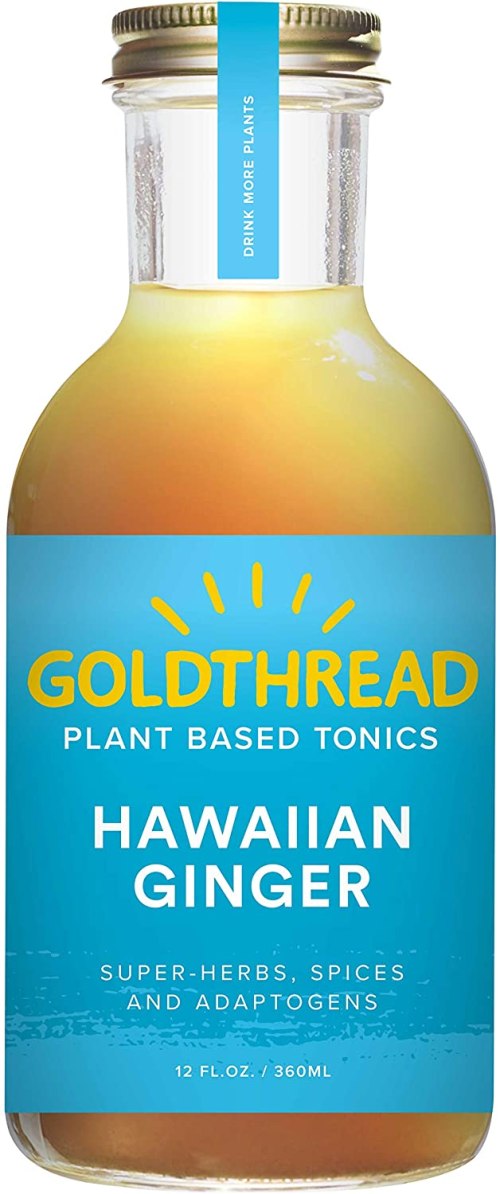
Goldthread Hawaiian Ginger Elixir (6 pack) — $38.00
Ginger fans will love this pick from Goldthread Tonics, which features a delightful blend of Hawaiian ginger, jasmine flower, coriander seeds, lemongrass, orange peel, and Madagascar vanilla. It’s designed to boost digestion, immunity, and energy levels. Most, if not all, of its ingredients are organic.
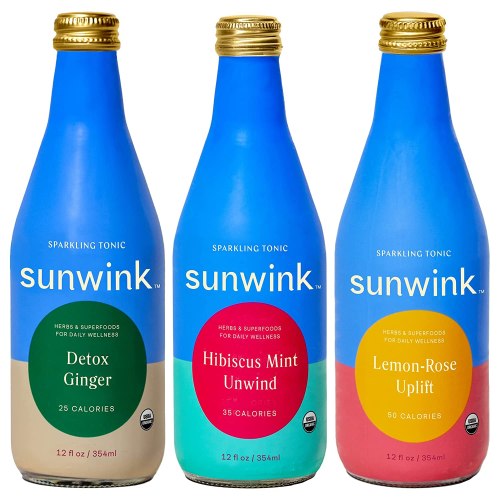
Sunwink Hibiscus Mint Unwind (12 pack) — $45.00
We already adore Sunwink’s Detox Ginger Tonic to help us with healthy digestion, but after the past few years we’ve had, the Hibiscus Mint flavor is both satisfying to our palates and our brains. Hibiscus offers antioxidant properties, while mint offers a digestive and anti-inflammatory boost, and the addition of adaptogens helps bring a sense of calm to our hectic workdays. Bonus: All of Sunwink’s drinks are organic.
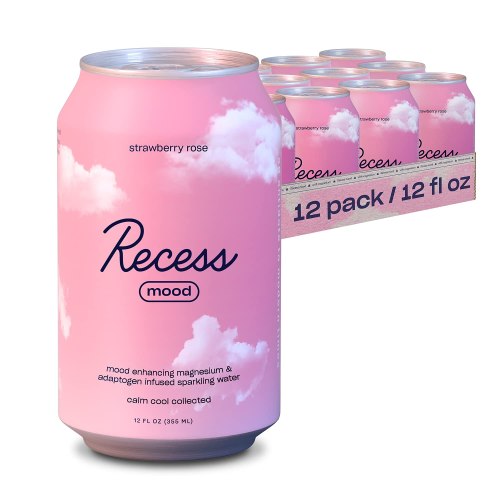
Recess Mood Strawberry Rose (12 pack) — $45.00
This mood-boosting tonic is also a great supplement for anyone looking to increase their magnesium intake, as well as B vitamins. It’s also a great pick for those looking to dip their toes in the plant-based tonics world, as it is sparkling water-based with supplemental herbs and adaptogens. Recess Mood Strawberry Rose is packed with a magnesium blend—offering 15 percent of your daily needs per can—ginseng, lemon balm, and L-theanine to keep you calm and content on the craziest of days.
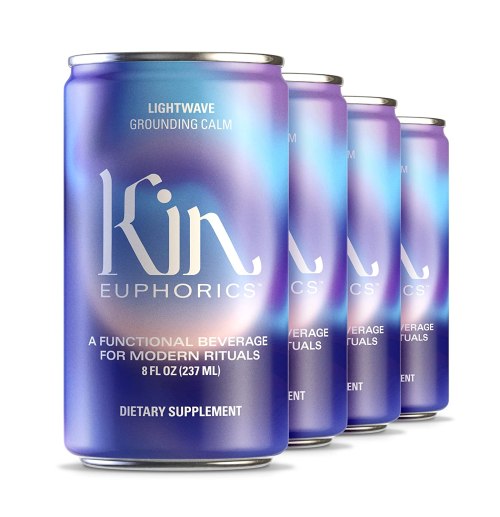
Kin Euphorics Lightwave (4 pack) — $22.00
An excellent pick for those looking to decrease their alcohol intake, Kin Euphorics offers a range of alcohol alternatives and plant-based tonics that will still elevate happy hour beyond a club soda with lime. Plus, the Lightwave variety is packed with a blend of botanicals, adaptogens, and nootropics that will help you focus while tampering stress and boosting brain function.
Sign up for the Well+Good SHOP Newsletter
Get exclusive deals on wellness, beauty, fitness, and food products that have been hand-picked by our editors.
Got it, you've been added to our email list.
